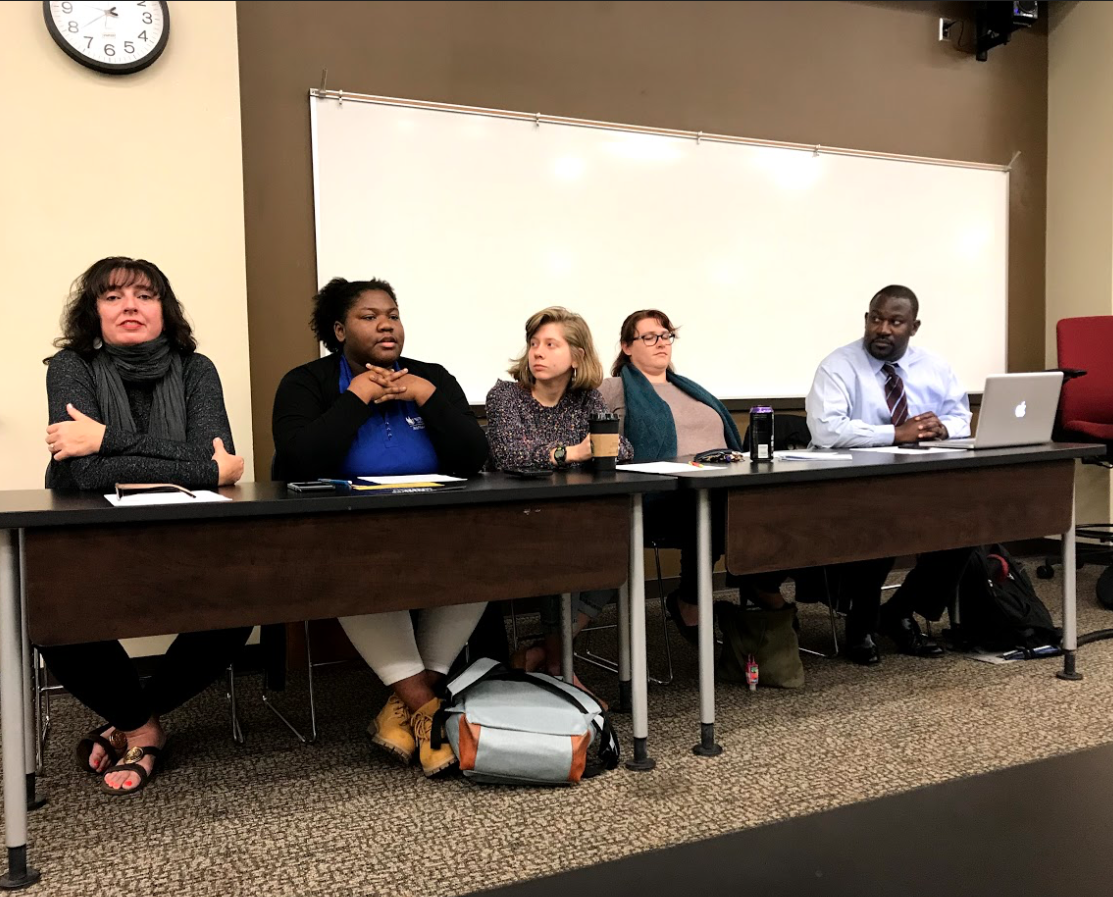Poverty and class inequality affects many people on a daily basis and some Winthrop students are among those who have experienced and dealt with poverty.
Jennifer Disney, professor of political science and director of women and gender studies, and Nathaniel Frederick, an associate professor of mass communication, collected a group of students who have experienced this class inequality.
On Oct. 24, they spoke about their experience and how that has influenced their time at Winthrop. They all came from a variety of backgrounds, but had all lived through – or were currently in – poverty.
Disney said that the idea for a panel on this topic came to her after discussions in her one of her classes over the last five years kept coming back to class inequality. Disney said that it was something the Winthrop community didn’t seem to understand much about and that those who did understand felt alone in.
Ana Barkley, a music education major, explained why she came to college and what her family’s reaction to her decision was.
“I came to college because I could not put myself through what my childhood had been and what my parents had gone through…[Education] wasn’t what made someone valuable in their worldview,” Barkley said.
Barkley said that the discouraging nature of her family not placing value on her education caused her experience at Winthrop to feel very different from the peers around her. Barkley said that she felt like an outcast and had to witness people’s parents staying invested in their child’s education.
Disney said that class can create a major impact on the way that a student experiences college. She said that students who come from affluent families often have something to fall back on when they need support whether emotional or financial.
Sydney Gowan is an economics major who worked two jobs while at Winthrop. She said that these privileges can limit a students ability to learn and their relationship with the college experience.
“When I was younger and people would be having parties or they’d be going to each other’s houses to study and having those experiences that you get when you’re in college and you don’t have to worry about money the same way that I did, it’s just isolating,” Gowan said.
The isolation and feeling of exclusion can be overbearing for some students who feel like they are not getting the rewards and benefits most of their peers receive from a liberal arts school, according to Gowan. Gowan said that she didn’t feel like she was getting all of the benefits of college, because of the need to pay for her education.
“I felt very alone and I felt like I was missing out. I was forking over this investment into college and into myself, but essentially really missing out on this really good benefit that college gives you,” Gowan said.
Aside from financial troubles, many of the students and panelists believed that meritocracy, or the idea that hard work will help you get where you want to go, also hinders a students success in college.
Sierra Davis, a social work major, said that meritocracy was detrimental and that it had a negative effect on students ability to get into college as well as their time spent there.
“The idea of when you bar a certain group of people from the resources they need, you can’t say that they haven’t worked hard enough with it and that they aren’t trying with it. Nobody wants to be in poverty…It’s like handing people a fixed deck and asking why they can’t win,” Davis said.




